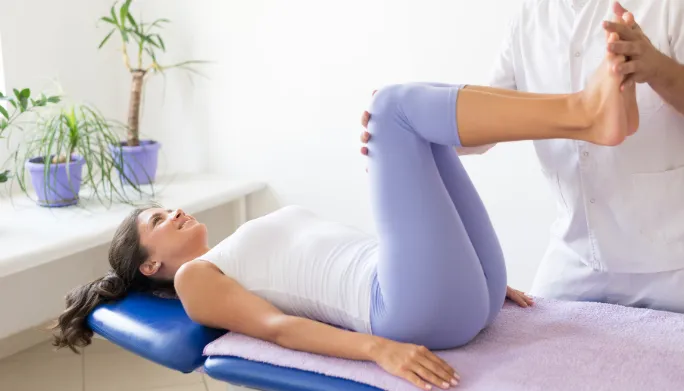Pelvic Organ Prolapse Tempe
What is Pelvic Organ Prolapse?
Pelvic organ prolapse is a condition where the organs in the pelvis, such as the bladder, uterus, or rectum, drop down or bulge into the vaginal canal. It is a common condition that affects many women, especially those who have given birth or gone through menopause. It can cause discomfort, pain, and incontinence, but it is treatable with the help of a physical therapist.

How Physical Therapy Can Help Pelvic Organ Prolapse
Physical therapy is an effective treatment option. It can help strengthen the pelvic floor muscles, which are responsible for supporting the organs in the pelvis. A physical therapist can design an individualized exercise program to help women regain control over their pelvic floor muscles and reduce the symptoms of the condition.
Benefits of Physical Therapy for Pelvic Organ Prolapse
There are many benefits of physical therapy for pelvic organ prolapse, including:
- Reduced Symptoms: Physical therapy can help reduce symptoms such as pain, discomfort, and incontinence.
- Improved Quality of Life: It can improve the quality of life for women who suffer from this condition.
- Avoiding Surgery: It can also be a viable alternative to surgery for some women, reducing the need for invasive procedures.
- Better Sexual Function: Strengthening the pelvic floor muscles through physical therapy can improve sexual function and satisfaction.
Pelvic Organ Prolapse Prevention Tips
While this is a common condition, there are ways to prevent it. Here are some tips:
- Practice Kegels: Kegel exercises can help strengthen the pelvic floor muscles.
- Maintain a Healthy Weight: Being overweight can increase the risk, so maintaining a healthy weight is important.
- Avoid Heavy Lifting: Heavy lifting can put pressure on the pelvic floor muscles and increase the risk.
- Quit Smoking: Smoking can weaken the pelvic floor muscles
What Causes Pelvic Organ Prolapse?
This is caused by the weakening or stretching of the pelvic floor muscles and tissues that support the organs in the pelvis. This can happen due to various reasons, including:
- Pregnancy and childbirth: Pregnancy and childbirth can cause stretching and weakening of the pelvic floor muscles, making them more susceptible to prolapse.
- Menopause: The decrease in estrogen levels during menopause can cause a reduction in the strength of the pelvic floor muscles, making them more prone to prolapse.
- Chronic coughing: Chronic coughing can increase abdominal pressure, putting stress on the pelvic floor muscles and causing prolapse.
- Heavy lifting: Regularly lifting heavy objects can strain the pelvic floor muscles and lead to prolapse.
- Genetics: Some women may have a genetic predisposition.
It’s important to note that not all women who experience these risk factors will develop it, but they may increase the likelihood of it occurring.
What are the Symptoms of Pelvic Organ Prolapse?
The symptoms of pelvic organ prolapse can vary depending on the severity of the condition. Some common symptoms include:
- A feeling of heaviness or pressure in the pelvic area
- Vaginal bulging or protrusion
- Urinary incontinence
- Difficulty emptying the bladder or bowel
- Pain or discomfort during intercourse
- Lower back pain
- Constipation
The Importance of Seeking Treatment
It’s important for women to seek treatment, as it can significantly impact their quality of life. Untreated prolapse can lead to urinary and bowel problems, sexual dysfunction, and even depression. Seeking treatment from a healthcare provider, including a physical therapist, can help manage the symptoms and prevent complications.
Get the Help You Need
It’s a common condition that can be treated with the help of a physical therapist. By strengthening the pelvic floor muscles through individualized exercise programs, physical therapy can reduce the symptoms of pelvic organ prolapse and improve the quality of life for women who suffer from this condition. To prevent this, it’s important to practice Kegel exercises, maintain a healthy weight, avoid heavy lifting, and quit smoking. With the right care and attention, women can regain control over their bodies and live a happy, healthy life.


